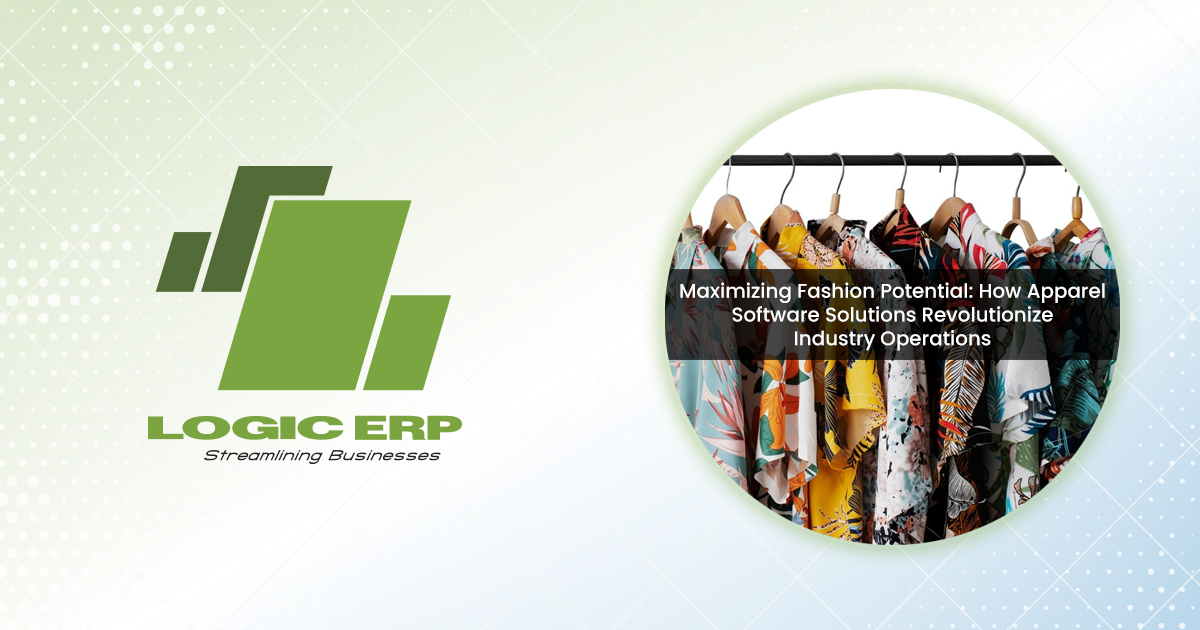

In the fast-paced world of fashion, staying ahead of the curve requires more than just trendsetting designs and creative flair. Fashion brands today need efficient operational systems to streamline their processes, manage inventories, and adapt to the ever-changing demands of the industry. This is where apparel software solutions come into play, offering a suite of tools designed to optimize various aspects of apparel manufacturing and retail.
From apparel ERP software to specialized manufacturing solutions, these software packages provide fashion brands with the technological edge they need to thrive in a competitive market. Let’s delve into seven key ways fashion brands can benefit from leveraging apparel software solutions.
1. Enhanced Efficiency in Operations
Apparel software solutions are designed to automate and streamline various processes across the fashion supply chain. From order management and production planning to inventory tracking and distribution, these software systems provide a centralized platform for managing every aspect of the apparel business. By digitizing and integrating core operations, fashion brands can eliminate manual errors, reduce lead times, and improve overall efficiency in their workflows.
2. Improved Inventory Management
Effective inventory management is crucial for fashion brands to meet customer demand while minimizing excess stock and markdowns. Apparel software solutions offer advanced inventory tracking capabilities, allowing brands to monitor stock levels in real-time, forecast demand more accurately, and optimize replenishment cycles. By maintaining optimal inventory levels, fashion brands can reduce carrying costs, avoid stockouts, and ensure a seamless shopping experience for their customers.
3. Streamlined Production Processes
Apparel manufacturing software enables fashion brands to optimize their production processes and enhance collaboration with suppliers and manufacturers. These software solutions provide tools for managing production schedules, tracking work-in-progress, and monitoring quality control throughout the manufacturing lifecycle. By digitizing production workflows and fostering greater visibility across the supply chain, fashion brands can minimize delays, reduce production costs, and deliver high-quality products to market faster.
4. Seamless Integration with Retail Channels
In today’s omnichannel retail environment, fashion brands must seamlessly integrate their online and offline sales channels to deliver a unified shopping experience for customers. Apparel software solutions offer integrations with e-commerce platforms, point-of-sale systems, and third-party marketplaces, enabling brands to synchronize inventory data, process orders efficiently, and analyze sales performance across multiple channels. By leveraging integrated retail solutions, fashion brands can capitalize on emerging sales opportunities and adapt to shifting consumer preferences in real-time.
5. Data-Driven Insights for Decision Making
Apparel ERP software provides fashion brands with valuable insights into their business operations through comprehensive reporting and analytics capabilities. By collecting and analyzing data on sales trends, customer preferences, and supply chain performance, brands can make informed decisions to optimize their product offerings, pricing strategies, and marketing campaigns. With access to real-time data and customizable dashboards, fashion brands can identify opportunities for growth, mitigate risks, and stay agile in a rapidly evolving marketplace.
6. Compliance and Sustainability
In an era of increasing regulatory scrutiny and consumer awareness, apparel brands face growing pressure to demonstrate compliance with environmental and labor standards throughout their supply chains. Apparel software solutions help brands manage compliance requirements more effectively by tracking the origins of raw materials, monitoring production processes for ethical practices, and documenting certifications and audits. By prioritizing transparency and sustainability, fashion brands can build trust with consumers, differentiate their brand, and contribute to positive social and environmental impact.
7. Scalability and Flexibility
As fashion brands grow and expand into new markets, they need scalable and flexible software solutions that can adapt to changing business needs and accommodate future growth. Apparel software solutions offer modular architectures and cloud-based deployment options, allowing brands to scale their operations seamlessly and access new features as their requirements evolve. Whether launching new product lines, entering new geographies, or expanding distribution channels, fashion brands can rely on apparel software solutions to support their growth trajectory and drive innovation in the industry.
In conclusion, LOGIC ERP play a critical role in helping fashion brands navigate the complexities of the modern fashion landscape. From optimizing operational efficiency and inventory management to enabling seamless integration with retail channels and providing data-driven insights, these software packages empower brands to stay competitive and agile in a rapidly evolving marketplace. By embracing the latest advancements in technology and leveraging the power of apparel software solutions, fashion brands can unlock new opportunities for growth, innovation, and sustainability in the dynamic world of fashion.

